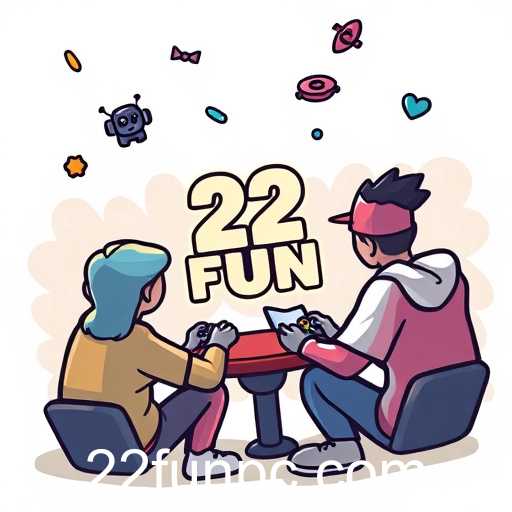Exploring how platforms like 22FUN are revolutionizing learning with games.
In recent years, gamification has firmly positioned itself as a transformative force in the realms of education and technology. Integrating game mechanics into the educational landscape has not only revolutionized the way children and adults alike engage with learning materials, but it has also created a new dimension for skills development and knowledge acquisition. One of the frontrunners in this evolution is the gaming website, 22FUN, which has been making significant strides in merging entertainment with education.
With the current year marking 2025, platforms like 22FUN are at the forefront of a broader educational trend that harnesses the power of play to foster engagement and motivation among students. This methodology is not only intriguing but, according to numerous reports, also highly effective. Educational institutions globally are partnering with gaming companies to create curricula that transcend traditional learning boundaries.
The success of gamification in education lies in its ability to make learning enjoyable and rewarding. Through well-structured challenges and instant feedback, students are encouraged to immerse themselves in subjects they might otherwise find daunting. 22FUN, for example, offers a variety of interactive games that cover topics ranging from basic arithmetic to advanced scientific concepts, all wrapped in a fun and engaging format.
Furthermore, the rise of gamification is intricately tied to the growth of educational technology, or EdTech, which has seen exponential advancements. The development of AI-driven personalized learning experiences allows platforms like 22FUN to adapt to individual learning styles, ensuring that each student receives content tailored to their unique needs. This adaptability not only facilitates more effective learning but also nurtures a lifelong love for education.
Critics of gamification in education express concerns about the potential for students to become overly reliant on external rewards. However, proponents argue that such systems merely reflect the motivational structures present in professional and personal life and that when used judiciously, gamification can instill a deeper understanding and appreciation for learning.
In conclusion, the dynamics of education are rapidly changing, with gamification emerging as a pivotal element in this transformation. As we progress through 2025, initiatives like those spearheaded by 22FUN continue to highlight the positive impact that innovative, play-based learning can have. With continued exploration and investment in gamification, the future of education looks promising, offering endless opportunities for creativity, engagement, and success.




